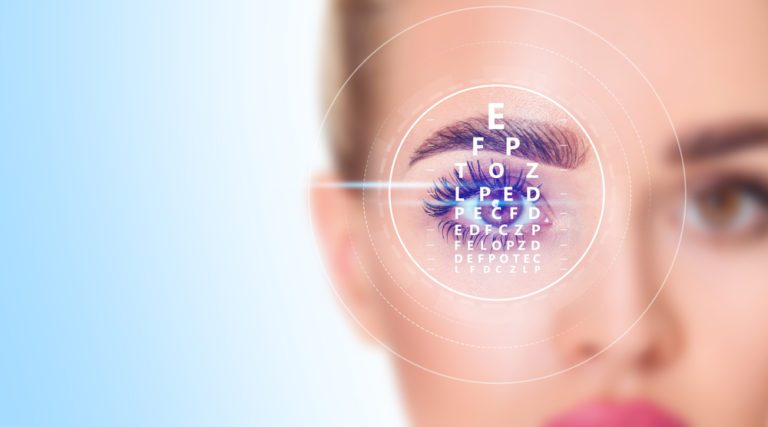Myopia and refractive problems can make reading or working incredibly hard for you. They can also lead to migraines, blurry vision, and eye strain. These issues can impact people from all different age groups. Lasik operation is the best option to correct refractive issues. The results of the surgery are permanent as Lasik surgery works by reshaping the cornea and helps your vision. Despite all the benefits and amazing results, Medicaid doesn’t typically cover lasik surgery unless it’s a “medical necessity”.
Generally, Medicaid covers routine eyewear frames, eye exams, corrective lenses, low vision aids, prosthetics, contact lenses, and medication when they are medically necessary. Sometimes, physicians present Lasik as a solution to eye injuries and past operations, making it a medical necessity. Lasik is also necessary for people who can’t wear glasses/contact lenses due to physical restrictions. Medicate covers the charges of medically necessary Lasik surgeries. The extent of coverage varies significantly from state to state.
READ |Tips to get your child to wear the lazy eye patch
When Does Medicaid Cover Lasik Surgery?
Medicaid will pay for the Lasik surgery done to correct refractive problems in the following instances:
1. A refractive problem causes the injury
2. The surgery is required to correct a refractive problem caused by previous surgery
3. The surgery is required to correct the severe refractive issue
4. The patient is unable to wear contacts/glasses due to physical restrictions.

The traumatic injury requires surgery to resolve the problem. Sometimes, Lasik is the only way and is deemed a medical necessity that will allow you to get coverage by Medicaid. Another such instance is when Lasik’s surgery was done for cosmetic reasons and went wrong. Now, your doctor has recommended a reoperation to create problems with the vision. Medicaid similarly covers expenses for other types of surgeries. This coverage is based on the state you reside in. The operation has to be done by the physician in a facility that gets coverage by Medicaid.
Get Medicaid to cover your Lasik Operation: How Can It Get Done?
As illustrated above, Medicaid doesn’t cover surgery expenses unless it is medically necessary. First, you need to get in touch with your provider to learn which vision benefits are a medical necessity. The next step is to reach out to an eye expert (ideally, the one that is going to perform the surgery) to learn whether you meet eye conditions.
Generally, if the insurance provider approves your eye expert visits, they are familiar with the requirements of Medicaid. If you see a Medicaid-approved doctor, they will know whether your surgery will be covered by Medicaid or not.
If you have dual eligibility, Medicare will cover only a part of the total cost, and Medicaid will cover subsequent copayments, deductibles, and coinsurance. In the case of Medicaid coverage, the entire cost will be covered by Medicaid.
What are the Charges of a Lasik Operation Cost without Medicaid?
The price of Lasik surgery varies from state to state. Generally, expect the Lasik operation to cost you around $2200 per eye in the US. It is a huge sum of money, considering the procedure only lasts 10 minutes per eye. The cost can go as high as $4000 per eye, based on the doctor and clinic you choose.
It is common for people to incline toward those that offer very low prices, such as $500 per eye. Be wary of such clinics, as you might end up with many hidden charges. The total price of the surgery is based on multiple factors: severity of the refractive issue, equipment, operation facility, and technology deployed. You should do a significant research before settling on the surgeon or the clinic.
A lot of insurance providers will have a complete list of Medicaid experts that meet the threshold of honesty and credibility. Take due time to find the right surgeon and get permanent results.
Other Coverage Options Available Other Than Medicaid for LASIK
Once you have decided that you want to get Lasik surgery, you have to option to get aid outside Medicaid. One of the best options is to use HSA or FSA to pay for the surgery. These plans cover laser vision correction operations as per RSC.
So, depending on the amount in your HSA or FSA account, you could cover some or all of the operating expenses. You can also consult your eye surgeon regarding Lasik surgery financing. Hospitals offer loans and flexible payment plan options that give patients the cost to pay for eye surgery over the years and months. Certain plans don’t offer interest but require patients to pay an upfront deposit.
Enquire about hidden charges, late payment fees, and pre-payment benefits in advance. Your employer can assist you in this regard. A lot of firms nowadays offer employees discounts for eye surgeries, dental surgery, and treatments that Medicaid doesn’t cover.
Large enterprises also offer their staff members private medical coverage with various vision benefits. Last but not least, consider getting vision insurance if you have a chronic eye condition and/or wear spectacles. As per RSC, you can get insurance discounts on Lasik and other refractive eye operations by up to 50%.
Final Takeaway
Medicaid does not typically cover Lasik as it is elective surgery. Moreover, there are various cheap options available out there. Medicaid is funded and controlled by states, and the coverage is based on whether the procedure is medically necessary or not. You can check the Medicaid website or contact your local agency to get more info on Lasik.
